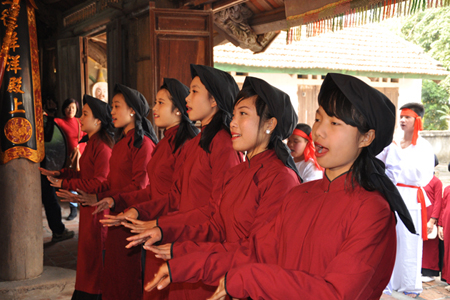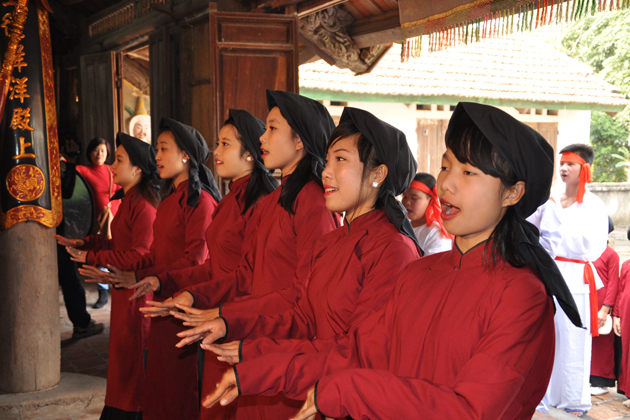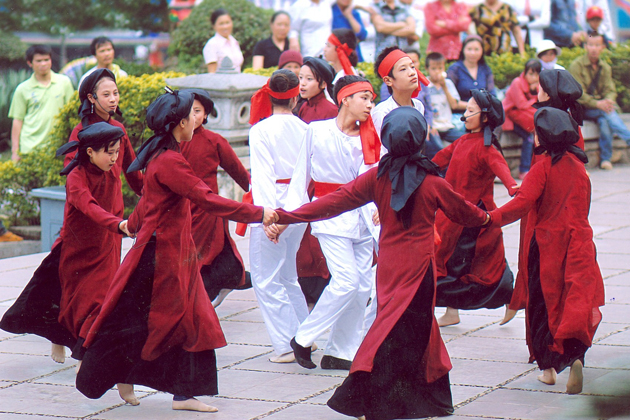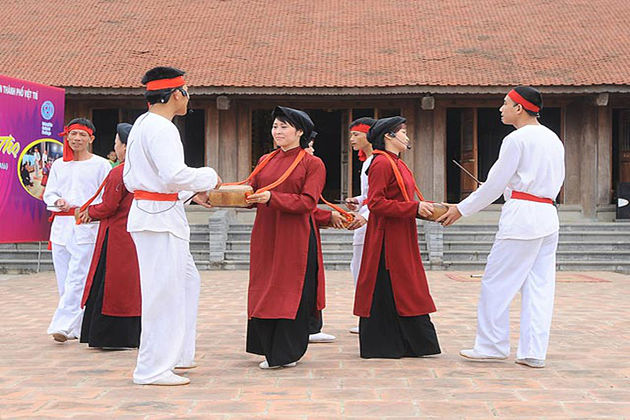Xoan singing, known as with another name of “hat cua dinh” (singing at the communal house), is a kind of art performed to worship gods. In order to welcome the new year, Xoan was performed by ancient Vietnamese under the govern of Hung Kings annually in the spring. Xoan singing consists of 3 forms which are the worship singing to commemorate Hung Kings and village guardian gods, the people who had merit for the country and families’ ancestors through the performances of Giao trong and Tho nhang; the ritual singing with 14 different melodies aims to pray for good crops and health and show admiration of nature, human beings, and communities’ life through some repertoires such as Trang Mai cach and Hoi lien cach; and finally, the festive singing is a combination of singers and instrumentalists expressing love and desire about happiness through melodies of Mo ca (groping for fishes), Xin hue (asking for flowers), Bo bo, etc.
History of Xoan Singing
Being created since Hung Kings dynasty for over 2000 years, Xoan singing was derived from villages in the center of Van Lang (the name of Vietnam at that time) – Phu Tho Province nowadays then expanded to other areas in the banks of Lo and Hong rivers.
Most Xoan songs were composed according to poetry styles such as seven-seven-six-eight-word-meter verse, seven-beat-meter verse, six-eight-word-meter verse, the variants of six-eight-word-meter verse, four-word verse, and six-word verse. It has a simple structure and rhythm with three-note scale and four-note scale.
Xoan Singing Nowadays
Nowadays, there are 4 old guilds named An Thai, Phu Duc, Kim Doi and The in Kim Duc and Phuong Lau provinces belonging to Viet Tri City, Phu Tho Province. Xoan guilds are places where artists preserve old songs and create more new melodies. The spring festivals are the occasion for them to reunite and practice together. Each Xoan guild includes 15 to 18 members with one leader called Trum, male artists called Kep (instrumentalists) and female artists called Dao (singers), etc. Xoan’s leader is an expert in art and a master in all its customs who will take responsibility for recruiting and training instrumentalists and singers.
In November 2011, Xoan singing was recognized as Intangible cultural heritage by UNESCO for its huge values in terms of history, culture, and art.






